
Successful Generation Z marketing strategies have adapted to this age group’s eight-second attention span, content consumption habits, and values. Current events continue to shape their media preferences, video content engagement, brand connections, lifestyles, beliefs, and outlook.
Who is Generation Z?
Generation Z (aka Gen Z, iGen, centennials, post-Millennials, or homeland generation), refers to the generation that was born between 1997-2012.
This generation has been raised on the Internet with multiple screens, social media, and streaming, not to mention experiencing a global pandemic during their formative years. More are starting to enter the workforce, starting families and developing long-term goals to better shape their future.
Gen Z Statistics
- Gen Z is the largest generation in history, constituting 26% of the total population across the world equaling 2 billion people. (NIQ/World Data Lab, 2025)
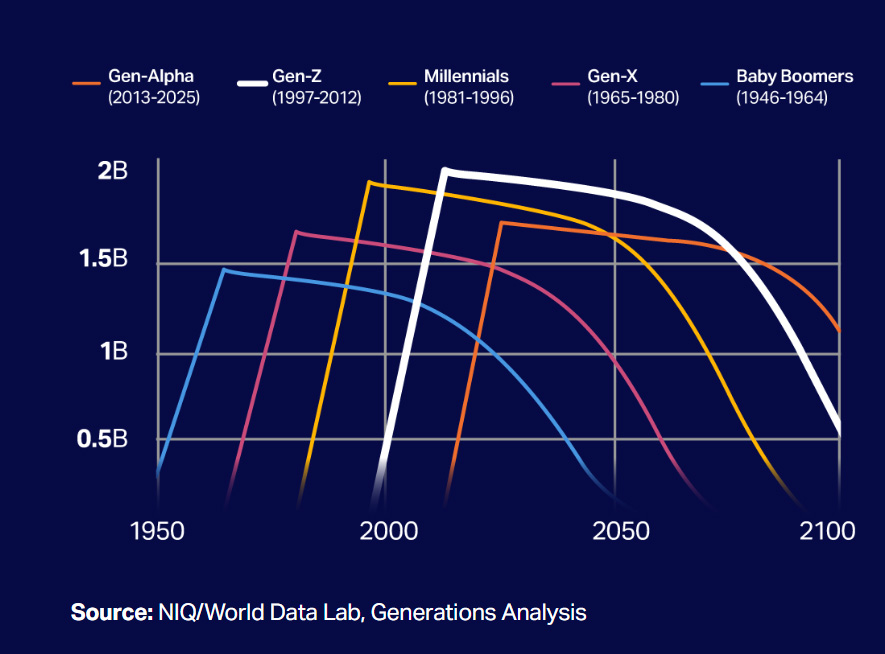
- There are 69.31 million Gen Zs living in the U.S. totaling over 20% of the U.S. population (U.S. Census, 2024)
- Gen Z is the most ethnically diverse generation in the U.S. with the slight majority (51%) of Gen Zs in America identify as non-Hispanic white; however, it’s predicted that number will dip below 50% by 2026. (Pew Research, 2024)
- Almost half (48%) of Gen Zs have entered the workforce; holding either part-time or full-time jobs or are self-employed, while 35% still students. (GWI, 2024)
- Gen Zs are delaying starting families with only 16% having children, while just 10% are married. (GWI, 2024)
- Gen Z’s spending power is expected to grow to $2.7 trillion USD over the next few years and $12T by 2030, having a significant influence on the products manufacturers and retailers sell in the near future. (NielsenIQ, 2025)
- When Gen Zers reach 25, their mean and median spending per capita in the U.S. will outpace prior generations and by 2030, Gen Z will contribute more wealthy people to every region in the world. (Nielsen IQ, 2025)
Gen Z Media Habits
- Approximately 98% of Gen Z individuals use the Internet regularly. (Source: Pew Research Center, GlobalWebIndex, Kantar, IBM, National Research Group, 2024)
- On average, Gen Z spends about 6 hours and 40 minutes online each day. (Source: Pew Research Center, GlobalWebIndex, Kantar, IBM, National Research Group, 2024)
- Nearly 99% of Gen Zs either own a smartphone or have access to one, making them the first truly “digital native” generation (market.us, 2025)
- Phones are the most common screen for short-form video, respondents said that nearly a quarter of those videos are watched on a TV set. (Hub Entertainment Research, Video Redefined, 2025)
- The most watched genres among Gen Z viewers are reported to be movies, animated series/cartoons, dramas, and music-related content. (Horowitz, 2024)
- The typical Gen Z streamer now utilizes over six streaming services, a noticeable increase from the five used in 2020. (Horowitz, 2024)
- Gen Z audiences are equally engaging with professionally produced TV content as they are to engage with non-professional content. (Horowitz, 2024)
- Approximately 80% of the demographic state that they watch short-form videos on a weekly basis, with 70% indicating that they regularly consume TV content every week. (Horowitz, 2024)
- Young people spend more time watching “non-premium” online video (21%) than they do regular TV shows (16%) compared to consumers age 35+ spending 39% of their screen time on TV shows – more than twice as much as online videos (14%). (Hub Entertainment Research, Video Redefined, 2025)
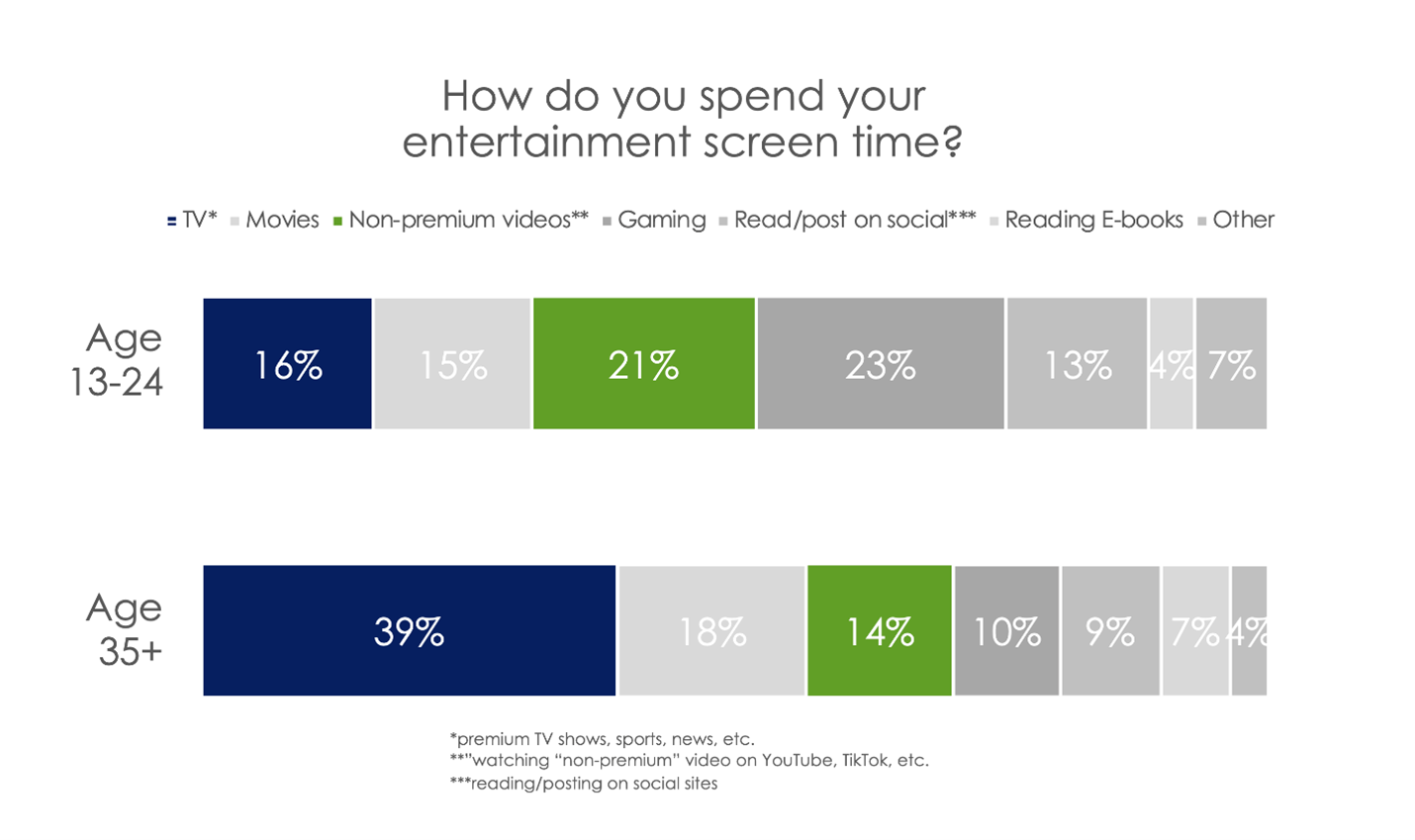
- More than half (57%) of viewers 13-24 say they spend less time watching “regular TV” because of the time they spend watching services like YouTube and TikTok. (Hub Entertainment Research, Video Redefined, 2025)
- Young people still watch TV, and more than 60% of them say they often watch shows or movies that they discovered for the first time via clips on social platforms like TikTok and Instagram. (Hub Entertainment Research, Video Redefined, 2025)
- Short-form videos aren’t just filler content – about 60% of all viewers under age 35 say that short videos are just as much fun as “premium” TV. (Hub Entertainment Research, Video Redefined, 2025)
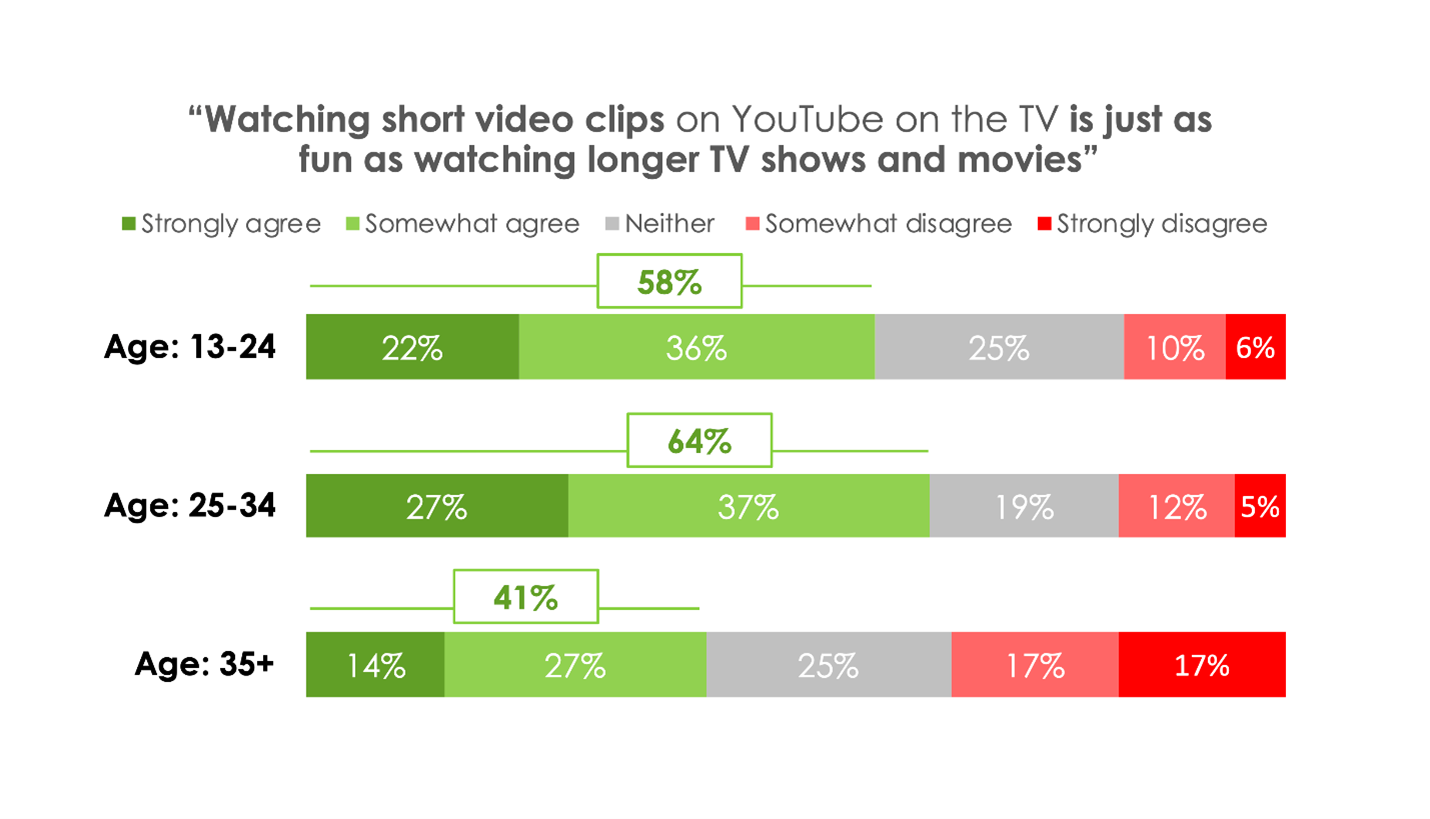
Social Media Use
- Gen Z is the most active generation on social media, with around 90% having at least one social media account. (Source: Pew Research Center, GlobalWebIndex, Kantar, IBM, National Research Group, 2024)
- Gen Z individuals spend an average of 2 hours and 55 minutes per day on social media platforms. (Source: Pew Research Center, GlobalWebIndex, Kantar, IBM, National Research Group, 2024)
- Instagram, TikTok and Snap are likely to see the highest rates of Gen Z usage, Pinterest is also becoming a bigger focus for young, shopping-ready audiences with more than 200 million young users also coming to the Pinterest platform every month. (Social Media Today, 2024)
- Gen Z is actively involved in content creation, with approximately 58% of Gen Z individuals creating and sharing their videos online. (Source: Pew Research Center, GlobalWebIndex, Kantar, IBM, National Research Group, 2024)
- Close to half of those under 35 feel they spend too much time on platforms like TikTok or Instagram and might better spend their time with TV and movies with 26% of viewers age 35+ feeling the same, despite spending less time with this content. (Hub Entertainment Research, Video Redefined, 2025)
Gaming
- Gaming is a prevalent online activity among Gen Z, with about 87% engaging in gaming regularly. (Source: Pew Research Center, GlobalWebIndex, Kantar, IBM, National Research Group, 2024)
- Esports, competitive gaming events, and live streaming platforms like Twitch have gained significant popularity with multiplayer games like Fortnite, Call of Duty, and League of Legens highly popular among Gen Z gamers. (Source: Pew Research Center, GlobalWebIndex, Kantar, IBM, National Research Group, 2024)
Marketing to Gen Z
- Social media platforms and mobile apps influence the purchasing decisions of approximately 55% of Gen Z smartphone users. (market.us, 2025
- Six Key Lessons for Marketing to Gen Z:
(Pinterest Business, 2024)View more details here.
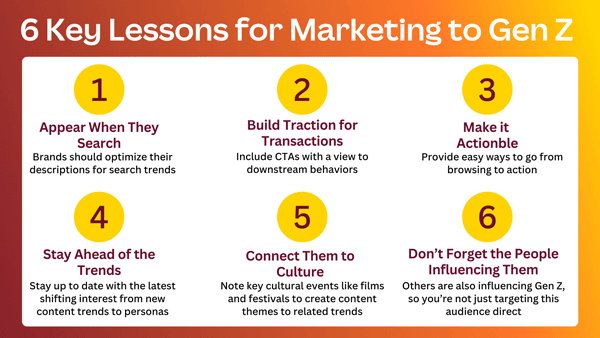
From CTAM Wired Webcast: Passing the Gender Equality Vibe Check with Gen Z
ANA/Horowitz Research:
- Don’t Label Gen Z
40% of Gen Z say labels should be chosen by the individual, not society - Roles are Not Gender Driven
Over 50% of Gen Z says both male and female identifying people can do anything from using makeup, to doing heavy manual labor, to being emotional, to having careers in STEM. - Disappearing Binary, Emerging Fluidity
50% of Gen Z says gender is non-binary. 64% say sexuality is fluid. - Allyship: “You Be You & Let Me Be Me”
88% of Gen Z disagrees that increased acceptance of non-traditional ways of thinking about gender and sexuality is bad for society. - Brand Authenticity
46% of Gen Z say to trust a brand, it’s not enough for them to claim support . . .but show it in action. And 47% say it feels like pandering when a brand makes ads focused on a cause that they’re not involved in.
Gen Z Shopping Habits
Generation Z’s shopping habits are shaped by an evolving world of digital convenience and personal values. While they rely on their own online research, peer reviews, and social media influencers, they still prefer the in-store, hands-on experience. Gravitating toward brands that support social causes and those offering personalized options reflect a desire for both ease and authenticity in their shopping choices.
81% conduct online research before making a purchase.
85% read reviews prior to making a purchase decision.
62% prefer to see reviews from people they know or trust.
70% use their smartphones for shopping.
62% are good with mobile-only checkouts.
51% have purchased directly through a social media platform.
72% prefer in-store
80% like to see, touch, and try before buying.
47% are more likely to buy a product if they can personalize it in-store.
66% have purchased a product based on a review from a social media influencer.
63% follow influencers on social media to discover new products.
59% say that they trust influencers more than traditional celebrities.
67% report that discounts and promotions influence purchasing decisions.
60% are more likely to purchase from brands that support causes they care about.
50% believe it is important for brands to take a stand on social issues.
(Source: IBM, Morning Consult, IBM, Forbes, 2025)
Social Issues
Having grown up in a constantly changing world, it’s only natural that this generation has strong feelings about the environment, politics, and social justice. Here’s how Gen Zs view some of today’s most pressing social issues:
- The cost of living is Gen Z’s greatest concern, while climate ranks high (Deloitte)
When asked about their concerns on a variety of social issues, 34% of Gen Zs said they were concerned about the cost of living — the highest percentage on any issue. 21% are concerned about unemployment, 20% about climate change, 19% about mental health, and 17% about crime and personal safety.
- Searches for “climate risk” are up 200% over the past five years.
46% of Gen Zs have either already changed jobs/industries or plan to do so due to climate concerns (Deloitte)
Gen Zs are willing to take decisive action in the fight against climate change. Not only are almost half either changing industry or thinking about it, but 54% are putting pressure on their employers to take more environmental action. Almost two in three Gen Z consumers (64%) are willing to pay more to purchase sustainable products. 62% have felt worried or anxious about climate change within the last month.
- Around 1 in 3 Gen Zs are regularly involved in some form of activism (United Way)
32% of Gen Zs partake in activism or social justice work, a figure rising to 40% among college students. Two-thirds say most of their activism takes place online.
Resources
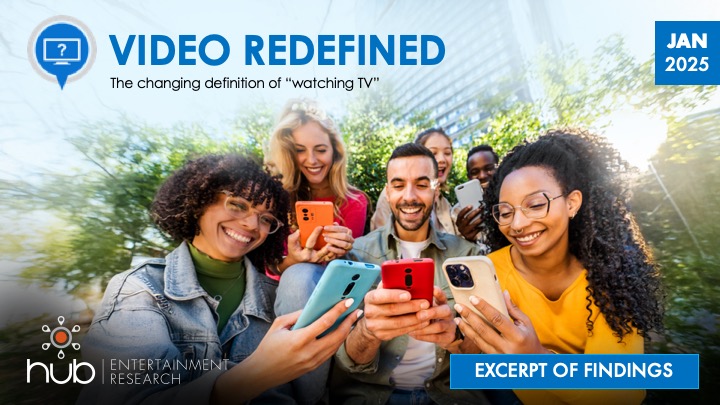
Video Redefined identifies the most popular types of non-premium content across platforms, consumer reaction to advertising, and how consumption of this content may (or may not) affect other platforms.
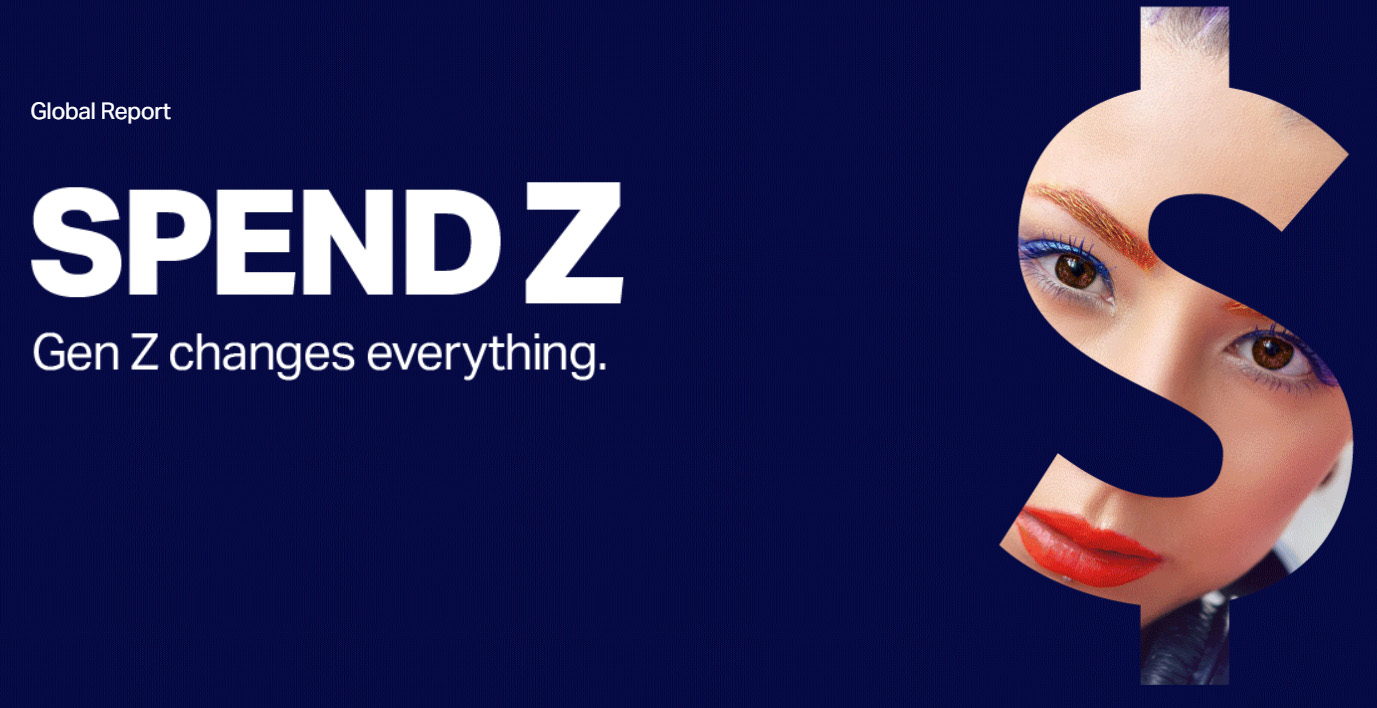
This first-of-its-kind deep dive report taps into Gen Z spending potential today, tomorrow and in the future to help brands build, foster, and maintain loyalty from Gen Z.
(Nielsen IQ)



